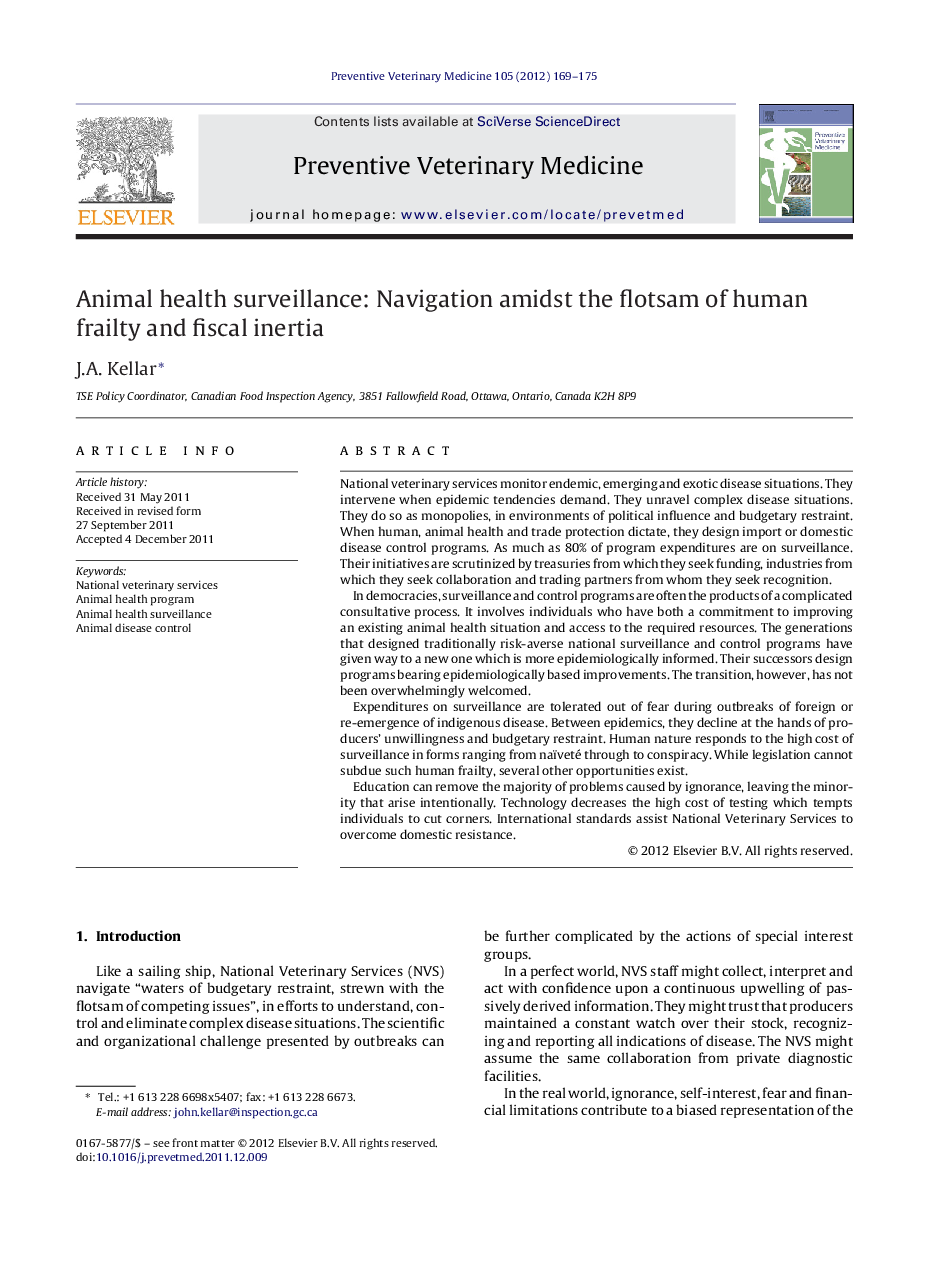| Article ID | Journal | Published Year | Pages | File Type |
|---|---|---|---|---|
| 2452764 | Preventive Veterinary Medicine | 2012 | 7 Pages |
National veterinary services monitor endemic, emerging and exotic disease situations. They intervene when epidemic tendencies demand. They unravel complex disease situations. They do so as monopolies, in environments of political influence and budgetary restraint. When human, animal health and trade protection dictate, they design import or domestic disease control programs. As much as 80% of program expenditures are on surveillance. Their initiatives are scrutinized by treasuries from which they seek funding, industries from which they seek collaboration and trading partners from whom they seek recognition.In democracies, surveillance and control programs are often the products of a complicated consultative process. It involves individuals who have both a commitment to improving an existing animal health situation and access to the required resources. The generations that designed traditionally risk-averse national surveillance and control programs have given way to a new one which is more epidemiologically informed. Their successors design programs bearing epidemiologically based improvements. The transition, however, has not been overwhelmingly welcomed.Expenditures on surveillance are tolerated out of fear during outbreaks of foreign or re-emergence of indigenous disease. Between epidemics, they decline at the hands of producers’ unwillingness and budgetary restraint. Human nature responds to the high cost of surveillance in forms ranging from naïveté through to conspiracy. While legislation cannot subdue such human frailty, several other opportunities exist.Education can remove the majority of problems caused by ignorance, leaving the minority that arise intentionally. Technology decreases the high cost of testing which tempts individuals to cut corners. International standards assist National Veterinary Services to overcome domestic resistance.
